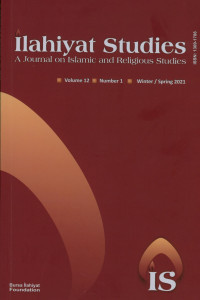Islamic Classical Theism and the Prospect of Strong Artificial Intelligence
Islamic Classical Theism and the Prospect of Strong Artificial Intelligence
This article investigates the compatibility of strong artificial intelligence (AI) with classical theism, particularly within the Islamic tradition. By examining the functionalist view of mental states, we argue that a Muslim who accepts classical theism should be open to the possibility of AI that possesses genuine mental states. We present two arguments to support this claim: one that challenges substance dualism and another that assumes dualism. Both arguments demonstrate that mental states can arise in at least two different substances, which implies functionalism. As a result, the development of strong AI would not be surprising from an Islamic perspective, and its creation might even provide corroborative evidence for classical theism. This article thus provides a philosophical foundation for the existence of conscious and intelligent machines and their potential compatibility with Islamic beliefs.
Keywords:
Strong AI, classical theism, functionalism, mental states, Islamic perspective artificial intelligence,
___
- al-Ghazālī, Abū Ḥāmid Muḥammad ibn Muḥammad. The Incoherence of the Philosophers: A Parallel English-Arabic Text. Edited and translated by Michael E. Marmura. Provo, Utah: Brigham Young University Press, 2nd edition. 2000.
- Baker, Lynne Ruder. “On a Causal Theory of Content”. Philosophical Perspectives 3 (1989), 165-186. https://doi.org/10.2307/2214267
- Baker, Lynne Ruder. “Need a Christian Be a Mind/Body Dualist?”. Faith and Philosophy 12/4 (1995), 489-504. https://doi.org/10.5840/faithphil199512446
- Boden, Margaret A. AI: Its Nature and Future. Oxford: Oxford University Press, 2016.
- Churchland, Paul M. “Eliminative Materialism and the Propositional Attitudes”. The Journal of Philosophy 78/2 (1981), 67-90. https://doi.org/10.2307/2025900
- Copeland, B. Jack. Artificial Intelligence: A Philosophical Introduction. Oxford: Wiley-Blackwell, 1993.
- Damasio, Antonio R. Descartes’ Error: Emotion, Reason, and the Human Brain. New York: G. P. Putnam’s Sons, 1994.
- Davies, B. “Divine Simplicity”. In The Stanford Encyclopedia of Philosophy (Summer 2018 Edition). Edited by E. N. Zalta. Stanford University. Accessed March 30, 2023. https://plato.stanford.edu/archives/sum2018/entries/divine-simplicity/
- Descartes, René. Meditations on First Philosophy. The Philosophical Writings of Descartes, Vol. II, 1-62. Edited and translated by John Cottingham - Robert Stoothoff - Dugald Murdoch Cambridge: Cambridge University Press, 1641.
- Dubber, Markus Dirk - Pasquale, Frank - Das, Sunit. The Oxford Handbook of Ethics of AI. New York, NY: Oxford University Press, 2020.
- al-Ashʿarī, Abū l-Ḥasan ʿAlī ibn Ismāʿīl Ibn Abī Bishr. Maqālāt al-Islāmiyyīn wa-ikhtilāf al-muṣallīn: İlk Dönem İslâm Mezhepleri. Edited and translated by Ömer Aydın - Mehmet Dalkılıç. İstanbul: Türkiye Yazma Eserler Kurumu Başkanlığı Yayınları, 2019.
- Fodor, Jerry A. Psychosemantics: The Problem of Meaning in the Philosophy of Mind. Cambridge, Mass.: MIT Press, 1987.
- Gazzaniga, Michael S. - Richard B. Ivry - G. R. Mangun. Cognitive Neuroscience: The Biology of the Mind. n.p.: W. W. Norton & Company, 5th edition, 2018.
- Helm, Paul. Eternal God: A Study of God without Time. Oxford: Oxford University Press, 2012.
- Insel, Thomas R.- Scolnick, E. M. “Cure Therapeutics and Strategic Prevention: Raising the Bar for Mental Health Research”. Molecular Psychiatry 11/1 (2006), 11-17. https://doi.org/10.1038/sj.mp.4001777
- Kitcher, Philip. “1953 and All That. A Tale of Two Sciences”. The Philosophical Review 93/3 (July 1984), 335-373. https://doi.org/10.2307/2184541
- Koch, Christof - Massimini, Marcello - Boly, Melanie - Tononi. Giulio. “Neural Correlates of Consciousness: Progress and Problems”. Nature Reviews Neuroscience 17/5 (May 2016), 307-321. https://doi.org/10.1038/nrn.2016.22
- Levin, Janet. “Functionalism”. In The Stanford Encyclopedia of Philosophy (Summer 2023 Edition). Edited by Edward N. Zalta - Uri Nodelman. Accessed March 30, 2023. https://plato.stanford.edu/archives/sum2023/entries/functionalism
- Lowe, E. J. “The Problem of Psychophysical Causation”. Australasian Journal of Philosophy 70/3 (1992), 263-276. https://doi.org/10.1080/00048409212345161
- Nasr, Seyyed Hossein et al. (ed). The Study Quran: A New Translation and Commentary. New York, NY: Harper One, 2015.
- Plantinga, Alvin. Does God Have a Nature?: The Aquinas Lecture, 1980. Milwaukee: Marquette University Press, 1980.
- Swinburne, Richard. The Coherence of Theism. Oxford: Oxford University Press, 1993.
- Taslaman, Caner. “Bedenin ve Ruhun İki Ayrı Cevher Olup Olmadığı Sorununa Karşı Teolojik Agnostik Tavır”. Marmara Üniversitesi İlahiyat Fakültesi Dergisi 33 (2007/2), 41-68.
- Turing, Alan M. “Computing Machinery and Intelligence”. Mind 59/236 (October 1950), 433-460. https://doi.org/10.1093/mind/LIX.236.433
- ISSN: 1309-1786
- Başlangıç: 2010
- Yayıncı: Bursa İlahiyat Vakfı
Sayıdaki Diğer Makaleler
Islamic Classical Theism and the Prospect of Strong Artificial Intelligence
The New Materialism and Post-Humanist Studies
Critique of Transhumanism's Concept of Humans from the Perspective of Islamic Thought
Meryem ŞAHİN, Mücahit GÜLTEKİN
A Criticism of Transhumanism from the Society 5.0 Perspective in the Context of Social Values
